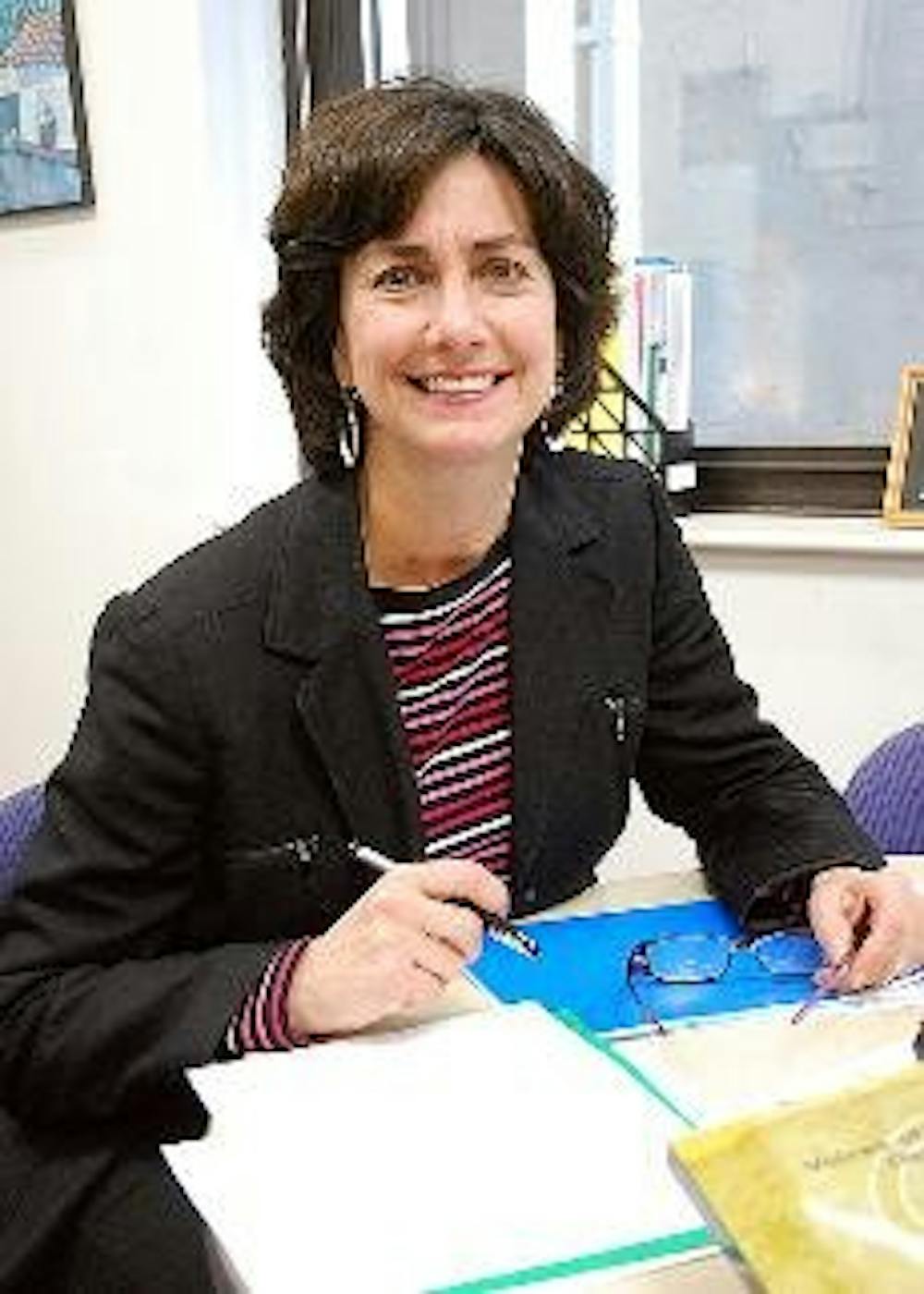It was August 1980, and the Sandinista government's five-month literacy campaign in Nicaragua was nearing its end. A small American film crew was there to document the results.
Marcy Fink Campos, who is now the AU Community Service Center's director, had just graduated from the University of Michigan when she joined award-winning filmmakers Doreen Kraft and Jay Craven to shoot "Dawn of the People," a film documenting the campaign's outcome. For six weeks, Campos visited towns and villages across the 50,446-square-mile Central American country and saw first-hand how the campaign reduced Nicaragua's illiteracy rate from 52 percent to 13 percent.
"It was a very transformative experience, and it gave me a new insight into what learning actually meant," said Campos, who said she built on that experience in every position she has held since.
Prior to the 1979 Sandinista Revolution, it was estimated that illiteracy rates were as high as 90 percent in parts of rural Nicaragua. Due to this crisis, the Sandinista government put literacy on the national agenda. Thousands of volunteers from across the country helped in the Sandinista government's call for action, and in the end, the campaign taught thousands of Nicaraguans how to read.
"I saw 60-year-olds learn how to read and write for the very first time, and I saw people who were able to graduate and talk about this life changing experience," Campos said. "It was such a positive thing that the government was choosing to do, and I really learned a lot from that."
Campos said she draws on that transformative experience, as well as many others in her life while in her current AU position. Since 2004, Campos has overseen all service programs at the university, with particular emphasis on alternative break trips and community-based learning, or service learning.
"We're focusing more towards connecting service to learning and the classroom because both students and organizations get more out of it if it's a longer exchange," she said.
The alternative break trips are student-initiated and involve organized trips to domestic and international locations with a variety of social justice themes. Upcoming alternative breaks include trips to Nepal, an Indian reservation in South Dakota, South Africa and Israel and the West Bank.
The Community Service-Learning Program offers another opportunity for AU students to add an additional credit to a course by participating in a project that combines classroom study with active civic involvement at a regional nonprofit during the semester.
"[Campos] has been a huge help and inspiration to me," said Jess Arencibia, a senior who works at the CSC and who has participated in the community service-learning program numerous times. "I've been juggling different groups and interests for a while now, and [Campos] was able to help me hone in on one specific interest."
Campos is the "go-to" person in the office, Arencibia said.
"She handles anything from little dilemmas to major problems," Arencibia said. "She is one of the most spirited and giving people that I've met at the university."
Campos has lived and worked in the D.C. area as a teacher in both public and private schools for over 25 years, a trainer in various adult education programs in the region's non-profit sector and an adjunct professor in the AU School of Education, Teaching and Health's International Training and Education Program.
Prior to arriving at AU, Campos worked at the Neighborhood Reinvestment Corporation and the National Council of La Raza - a non-profit organization that works to reduce poverty among Hispanic Americans, providing her with the experience, connections in the D.C. non-profit sector and the know-how to successfully coordinate community service programs at the university level.
"[Campos] has a really good vision, a larger picture vision, of how to get students involved," said Shoshanna Sumka, a coordinator for global and community-based learning at the CSC. "Without [Campos], the Community Service Center would be much narrower minded. She has been key in getting students and faculty to look outside our little campus and to see the needs of the greater community."
Because its volunteers earned about 60,000 hours of community service, AU was placed on the 2008 President's Higher Education Community Service Honor Roll in January for the third year in a row. The Student Affairs Administrators in Higher Education recently recognized the CSC for its service-learning program and alternative break opportunities.
AU's commitment to service and its socially conscious faculty is part of what brought Campos to the university.
"I think people come to [AU] particularly because it has that connotation of being the most politically active campus in the country," she said. "It's amazing the number of people at the university, both students and faculty alike, that have so much experience in working in their communities."
Campos' passion remains with education, and she continues her quest to improve education in Washington's public school system.
"When people see how old the textbooks are, the failing test scores and the crumbling walls, that's when it hits them how bad it really is," she said. "Public education now caters to one type of learner, and sitting passively doesn't help many. I don't know all the solutions, but the first step is in realizing this."
It's a daunting task to take on the social troubles of the day, but Campos said learning to serve is the start.
For Campos, that process began back in Nicaragua, where some 70,000 young Nicaraguans from the cities went to the rural countryside to teach others to read and write. Exploring the factories, homes, classrooms and coffee plantations of this foreign land made Campos realize something.
"I had to see it somewhere else before in my own backyard," she said. "It's a very powerful force to be an educator and to then use education as a tool."
You can reach this writer at news@theeagleonline.com.





